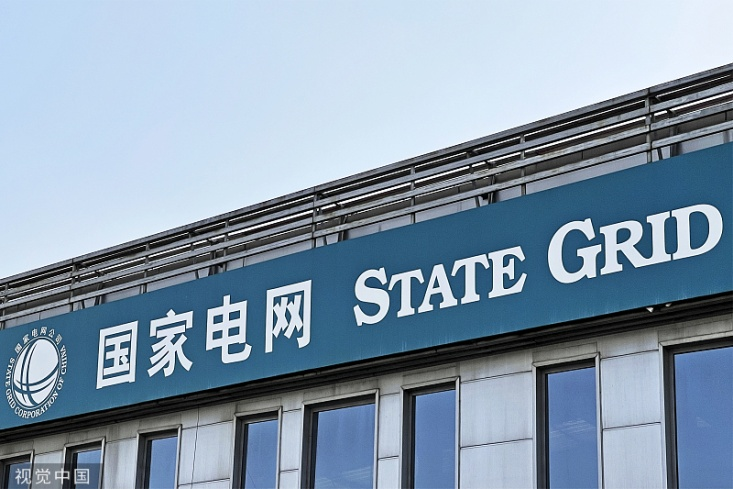State Grid to undertake Brazil's new push for clean energy
By JIMENA ESTEBAN in Buenos Aires | chinadaily.com.cn | Updated: 2024-04-16 15:47

China has emerged as a major partner for Brazil in modernizing its electricity sector. On April 3, China's State Grid Corporation signed a 30-year franchise agreement that will see the company build a 1,500 km transmission line in the northeast of Brazil.
The $3.6 billion project will help integrate renewable energy sources like wind and solar into Brazil's national grid and support the country's transition to cleaner power.
The transmission line and two new substations to be located in the states of Maranhao and Goias will span a region rich in wind and solar resources but currently lacking sufficient infrastructure to transport the power to population centers farther south.
State Grid, which will undertake the project and help fill the infrastructure gap, entered Brazil to distribute clean and safe energy that meet sustainability principles, said Ricardo Teixeira, the coordinator of the MBA program in financial management at Fundacao Getulio Vargas, a higher education institution and think tank.
This new project could help ensure a steady supply of clean energy for Brazil, particularly in areas with low population density, great growth potential and a high interest in socio-environmental preservation, Teixeira said.
Once operational in 2029, the ultra-high voltage direct current (UHVDC) line will deliver an estimated 5 million kilowatts of renewable energy to key regions including Brasilia, meeting the electricity needs of more than 12 million people.
Teixeira noted that several projects from Chinese companies are already operating or in progress in Brazil.
Last December, State Grid won the largest power transmission auction in Brazil – one of the three large concessions totalling over 4,470 km of new transmission lines recently awarded by the Brazilian government.
"The impact on the Brazilian economy is positive, both from the point of view of generating direct and indirect employment and from the purchase of inputs and services for its operation," Teixeira said. "The investments it has made, and those it has already announced it will make in the near future, are being marketed in vast regions experiencing rapid development. But we want sustainability to be respected."
"All businesses with partners who have capital and technology for clean production and job creation are very welcome," Teixeira said.
Brazil's Minister of Mines and Energy Alexandre Silveira said the new projects represent the largest infrastructure auction in the country's history. In addition to the northeast transmission line, State Grid has committed to invest $39.7 billion more broadly in Brazil's power industry.
"The investment contracted by the Chinese state-owned company State Grid is massive, more than $40 billion, and is directly involved in the auction of transmission lines for Brazilian states that are part of the Legal Amazon," said Bruno Lima Rocha, a political analyst.
"The initial impact is the hiring of labor and the nationalization of part of industrial production for large transmission lines and their towers. In the medium term, it could expand the presence of the Chinese state-owned company in the exploration of strategic minerals," said Rocha.
State Grid already operates the 2,500 km Belo Monte UHVDC transmission project that links Brazil's largest hydroelectric dam to population centers. Its experience in executing large transmission projects positions the Chinese state-owned enterprise to play a key role in advancing Brazil's goal of transitioning to cleaner sources while strengthening grid reliability.
The new Northeast line will support a boom in renewable energy development in the region. Helped by attractive incentives, wind and solar farms have proliferated in Brazil's northern states, but inter-regional connections are currently insufficient. Integrating these zero-emissions sources through expanded transmission is crucial for reducing Brazil's carbon footprint from electricity generation.
But some questions remain, including whether any capital transfers will be in renminbi, at least in part, which could boost Brazil's capacity for reinvestment in other markets.
"We have a surplus in Chinese currency and this can and should be used as currency for transactions with insurance through the New Development Bank or between members of the (BRICS) bloc, Rocha said.
Chinese infrastructure companies are involved in building power infrastructure throughout the region.
In Chile, the state-owned China Southern Power Grid is working with two local Chilean partners to build the country's longest power line after winning the contract in 2021. The 1,500-km line would span Chile from the northern border with Peru to the capital Santiago. The project has reportedly faced permitting delays, with construction yet to begin as environmental reviews are still in progress.
The writer is a freelance journalist for China Daily.
























